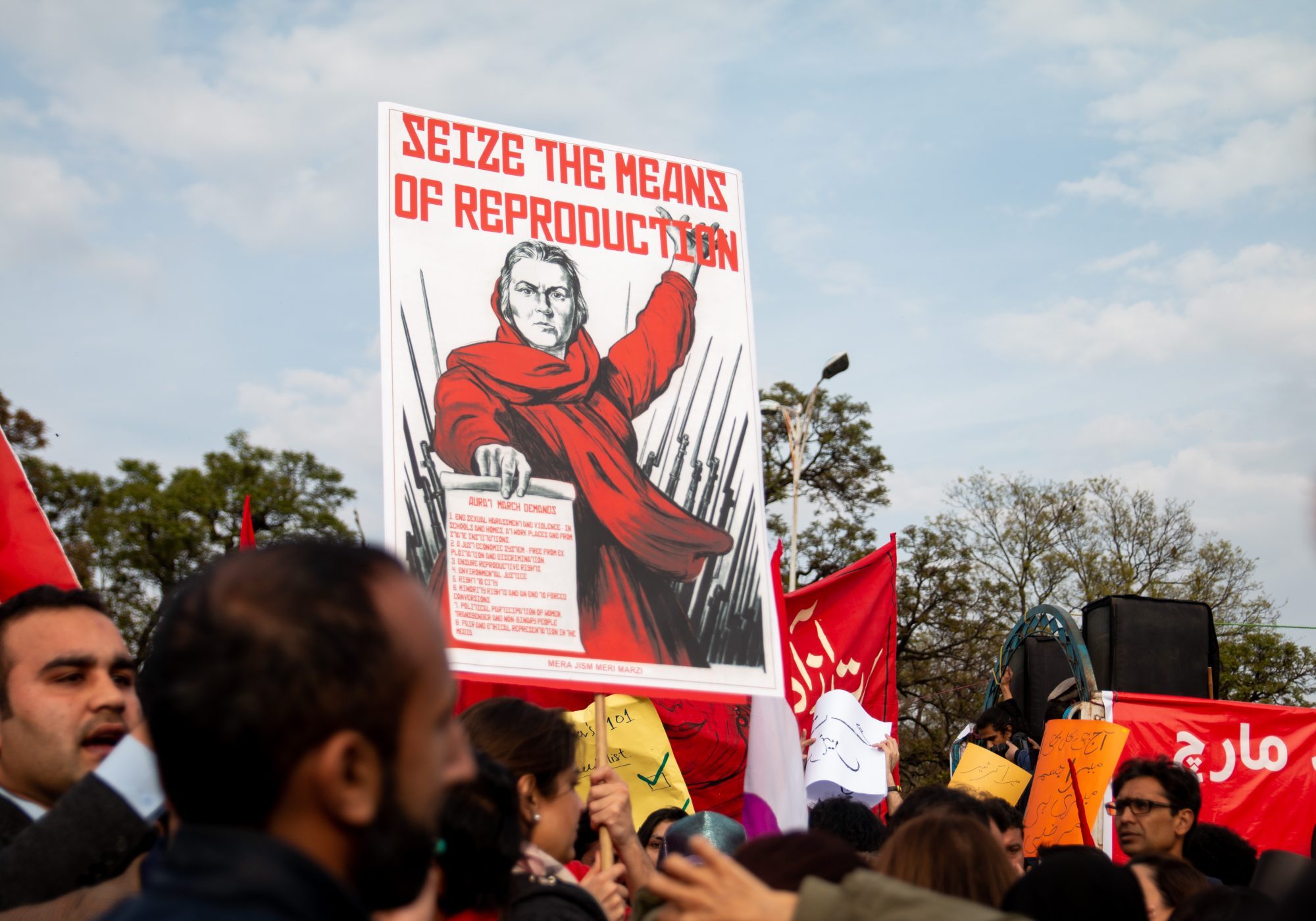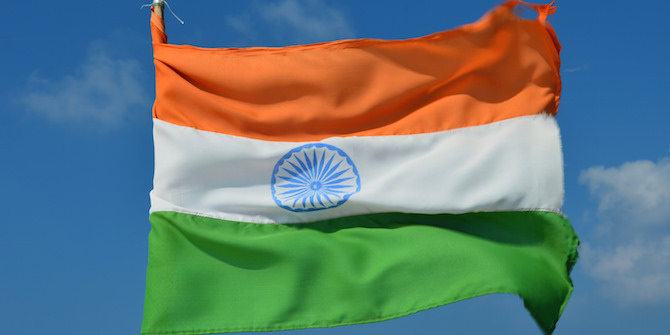 Following a recent visit to Dhaka, David Lewis reflects on the narrowing civil society space in Bangladesh under the increasingly defensive Awami League government.
Following a recent visit to Dhaka, David Lewis reflects on the narrowing civil society space in Bangladesh under the increasingly defensive Awami League government.
Bangladesh has long been known as a country with a vibrant civil society. It has some of the best-known non-governmental development organisations (NGOs) in the world (see for example BRAC), as well as longstanding traditions of citizen protest and advocacy, rooted in the longer history of Bengal and East Pakistan. But as we move further into the second term of Bangladesh’s Awami League government, there are signs that civil society space is narrowing. The government of Sheikh Hasina Wazed was re-elected unopposed for an unprecedented second term of office in January 2014 after the main opposition BNP refused to take part in elections following a row over the election arrangements. The political turmoil has continued through the recent mayoral elections.
Spending a few days in Dhaka last week after being away for over a year, I was struck by growing concerns among civil society activists and professionals that I spoke to that the government is increasingly adopting a more authoritarian style, becoming less willing to tolerate dissent, and putting constraints on activists in the non-governmental sector. The trend has been building for some time.
Bangladesh’s development NGO sector has become less diverse than it once was. Its radical ‘social mobilisation’ wing has long faded away, with only a few organisations such as Nijera Kori keeping the rights-based, empowerment approach that forms an alternative to the provision of micro-credit that today represents the main – and in some quarters increasingly discredited – business of most development NGOs. The sector is now made up of relatively few key players such as BRAC (which these days is closer to a social enterprise than an NGO), large numbers of small contracting organisations that mainly serve government service delivery, and a shrinking space for critical civil society groups and voices. The government has long wanted to introduce new regulatory NGO law that would increase its power to control non-state organisations. Although this has stalled for the time being, it remains a contentious issue.
The fall-out from the International Crimes Tribunal (ICT), the country’s war crimes tribunal, which has been ongoing since 2009 is another driver of this new climate. Most civil society organisations and activists share the government’s objective of seeking justice in relation to the war crimes committed by Pakistan’s army and its local collaborators in 1971. But when civil society activists have raised concerns about due legal process the courts, the government have hit back with harsh penalties. When activists recently signed a letter in support of human rights lawyer David Bergman, placed in contempt of court after setting up a blog that asked legal questions about the process, they too were held in contempt and some were made to pay a fine.
The implementation of the Chittagong Hill Tracts Peace Accord has stalled, and as a result the underlying land issues remain largely unresolved. The peace accords were agreed in 1997 and aimed to end the longstanding conflict between indigenous jumma peoples and Bengali settlers. Following a ban on organisations meeting with indigenous communities the CHT issue is increasingly closed to civil society voices, which means there is unlikely to be movement on it in the near future.
Faced with a government that has begun to talk about the significance of China’s development model, the tradition of a sub-sector of civil society groups working to promote democratic governance through democracy training, parliamentary training and election monitoring seems ever more out of step with reality.
Furthermore, while the NGO community has usually steered a careful course of avoidance of becoming too close to politicians and has mostly preserved a non-party political line, civil society is now becoming more politically polarised. It is becoming less unusual for some NGO leaders, for example, to allow themselves to be identified with political groups than perhaps was the case previously. The divisions were particularly noticeable earlier this year in the run up to the Dhaka mayoral election in April.
Many Bangladeshis recall the Bangladesh Krishak Sramik Awami League (BAKSAL) era was when PM Sheikh Mujibur Rahman – the father of the current PM Sheikh Hasina – briefly established one party rule in January 1975, not long before he was assassinated in a military coup. Comparing the current climate to the BAKSAL era has long been a favourite theme of the opposition following the 2014 election. But today there are some civil society leaders who are also beginning to feel that such comparisons may not be so far off the mark.
Indeed, there is also a growing visibility of the army, as the government seeks to keep the military onside during a period of continuing political uncertainty and potential instability. Careful to maintain good relations, the PM has highlighted the role of the military as helping to facilitate elections and as guardians of democracy.
The government is insecure and fears – with good reason – the influence of Islamist groups on the one hand and the military on the other. The hope is that this new defensiveness does not do damage to the country’s hard-won civil society space, which has long been an important contributor to the country’s continuing political development and its development success story.
Image: Shahbag Square protests 2013. Credit: flickr/Faisal Akram CC BY-SA 2.0
Note: This article gives the views of the author, and not the position of the South Asia @ LSE blog, nor of the London School of Economics. Please read our comments policy before posting.
About the Author
 David Lewis is a Professor of Social Policy and Development at The London School of Economics.
David Lewis is a Professor of Social Policy and Development at The London School of Economics.
David is a regular contributor to the India at LSE blog. View more of his posts here.








I fully agree with the analysis of Prof David Lewis re decreasing space of non-partisan civil society in Bangladesh and eventual rise of extremism, most likely, Islamism. Indeed, given its record of corruption, authoritarianism etc.and given Prime Minister Hasina’s increasing dependence on repressive measures to handle opposition and its concession-giving relationship with India for its survival, most Bangladeshis see her government as much abusive and slavish (in relation to to India, that is). The latter perception that the PM is selling off Bangladesh’s soveriegnty to India’s in exchane of protection is gaining momentum probably not completely without reason. This is disturbing because as Prof.Lewis eludes to, this would certainly promote a coalition of Islamists and the Army that eventually will start to look more like a nationalist force fighting to restore country’s soverignty – politica, economic and also cultural (there is also this perception that under Hasina’s ‘secular’ regime, the country is losing its ‘muslimness’. This was also more or less the backdrop of 1975 coup – Mujib became unpopular for his authoritarianism and his government lost credibility because of corruption and poor administration and also because it “sold the country to India”.
Many thanks Adil for your interesting comments. I don’t however believe the AL government for all its faults is selling the country off to India – I welcome the closer relationship, and see the two countries’ futures as necessarily interdependent.
Thanks David for putting light on the issue.
To many citizen, it was obvious to be more oppressive Government in the 2nd term (as the performance was at rhetoric level and all constitutional institutions have been made paralyzed during the immediate past tenure. While the opposition is weak enough just to echo with Government voice, gradual fall of alternative political party due to massive killing, arrest, torture and visionless leadership, what better situation can be expected? Mass people have been looing their tolerance which have not been reflected in political procession but in their every interaction in social and personal level.
Once upon a time, when people use to refer betrayer as “Mir Zafar”. Now I often hear, people say “are you a human being or a leader of ruling party)?” Even they say it with fun but I find hidden cruel connotation of it
.
we are so unfortunate that there is no single political party/leaders in the country who can read untold story of the mass people.
Dear David, Thanks for responding to my comments. You may be right that AL government may not be “selling the country to India” but there is little doubt that among many factors conditional backing of India is key to its survival. Perhaps in the absence of verifiable evidence observation re AL government/India relations is somewhat speculative at this stage. But this is mainly because of government’s reluctance to make public and debate objectively the details of agreements made with India since. Until that happens or someone has done a thorough research on the subject such suspicions will continue to rise and provide fodder to Islamist/nationalists for their mob mobilization work and this is certainly not a welcome prospect for Bangladesh. Thus sooner the secularist forces in Bangladesh – and this does not necessarily include AL government, its secularism is lip deep and is promoted mainly for international consumption – and also those that support growth of a secular democratic polity in Bangladesh must join hands to counter two evil forces, the pretend-secularists and fundamentalist Islamists – that are ripping apart the heart of Bangladesh and most worryingly, risking its own and that of the region’s security and stability. I also believe that in order to build a more stable and peaceful world West needs to remove its geo-politics based one-eyed ‘Islamic fundamentalist’ lens and study situations more objectively for I do not believe that Islamic fundamentalism is such a big issue in Bangladesh. However, if the repressions and injustices of the pretend-secularists continue unabated, it will mullahs look like Mother Theresa! Therefore, more repression of mullahs is not the answer, true democracy and freedom is.
Finally, thanks for writing such a thought provoking piece. I wish you the very best with your Bangladesh project. After all, outcome of it will not only benefit Bangladesh but also the region as a whole.
Best regards.
Adil
Thank you Sagar – your comment raises another important aspect of ‘civil society’: that of the wider cultures of civility within social and political relations.
Thanks also Adil for responding further to my comment. I think your distinction between ‘secular democrats’ and ‘pretend secularists’ is an interesting one. Can you say something about what the agenda and motivation of these ‘pretend secularists’ is, and why this particular form of political expression and action has meaning? What is the difference between the two groups, do you think?
To me the ‘secular democrats’ are those that do not mix religion with businesses of the state and believes in full spectrum of liberal democracy that adhere firmly to principles of freedom, inclusiveness, social justice and steadfastly respect and practice rule of law. ‘Pretend-secularists’ are opportunists that use ‘secularism’ (or for that matter any ‘ism’) to suit a certain political climate (geo-political, in this case) as a tool of political self-aggrandizement, with the license to suppress with impunity the opposition and dent democratic values.
AL government’s disproportionate bias towards Hindus that constitute about 8-9% of total population in placing many of them in important government positions (but not in party executive committee though) has little to do with their commitment to secularism but more with political opportunism to serve two interlinking goals – getting these people to do its dirty work unquestioned and earn brawny points with India, its conditional backer. Another example of its ‘pretend secular’ character is that in recent times government took initiatives to change the law of inheritance that is religiously sanctioned that allows Muslim women to inherit only 20% of her parental property and in in Hindu law girls have no entitlement to parental property to 50%-50% between male/female offspring. After some objections from the muslim fundamentalists, law was passed but affecting only for the muslims. Hindus were exempted. I can cite numerous examples of duplicitous behaviour of Bangladesh’s especially those belonging to AL. For example, during the Pakistan time AL especially its the then leader Shiekh Mujib was a petty bourgeoisie known for their pro-capitalist bias and their autonomy demand for East Pakistan at the time had nothing to do with equity and social justice for all, it was all about gaining more political power to enrich East Pakistani business people, a class to which Mujib himself belonged. However, as the autonomy movement started to gain momentum and turned into a mass movement, many leftists and socialists entered the party that transformed AL manifesto from narrow autonomy demand to social transformation demand of socialism. Around this time most probably in late 60s, the then British Deputy High Commissioner asked Mujib whether he was aware that leftists and socialists were entering and influencing the ideological direction of his party. To this Mujib replied, “If this country one day go communist, I shall still be their leader”. So as you can see AL once were a pretend-socialist as well.
Basically AL as most bourgeoisie based political parties are opportunists – they use one or the other banner that suits the flavour of the month (for example, AL- ‘pretend secular’; BNP – ‘Bangladeshi Nationalism’ a cocktail of a sort based on secular Islamism) that promote their narrow self-interest.
I believe that not only in Bangladesh, but in most countries democracy is trouble needing reform and renewal. See this article
http://www.thedailystar.net/is-democracy-a-plaything-of-the-m3-44749 .